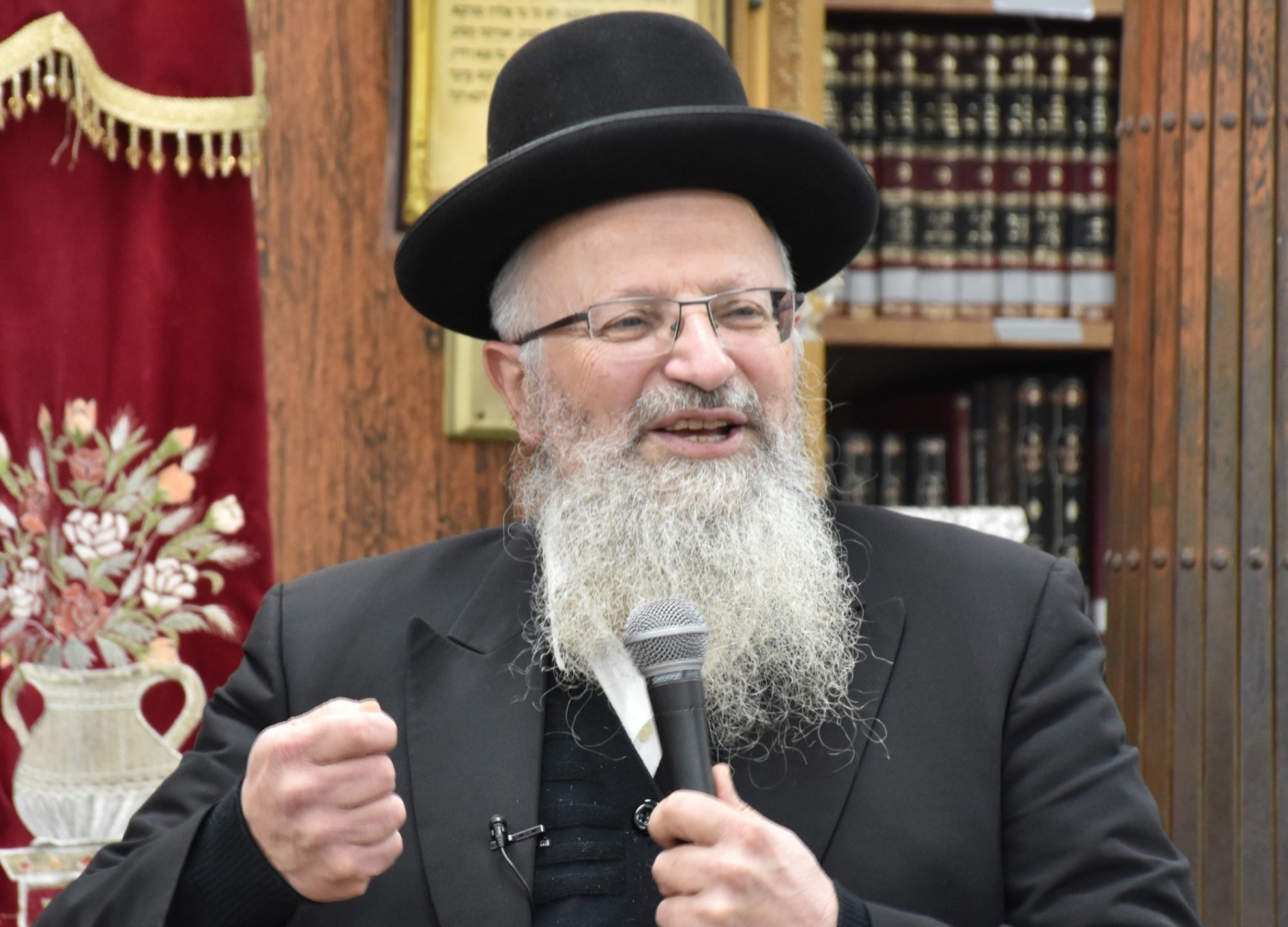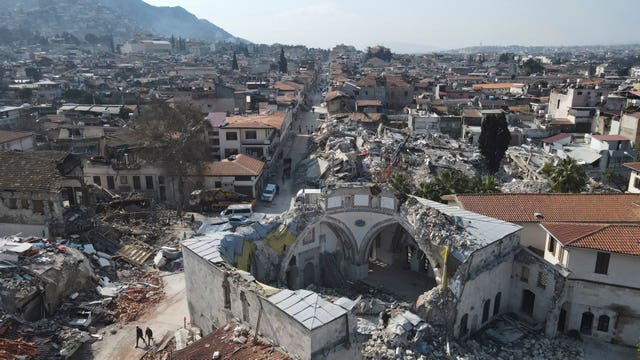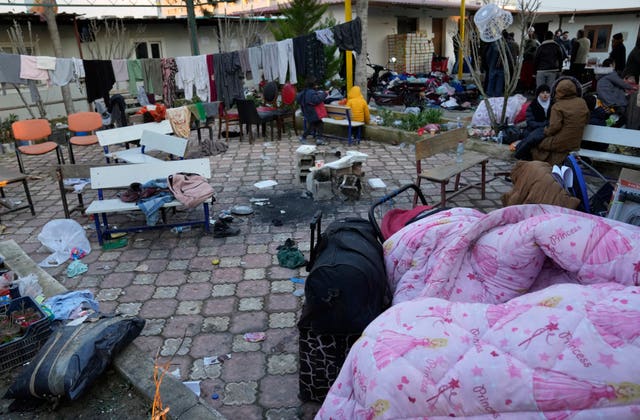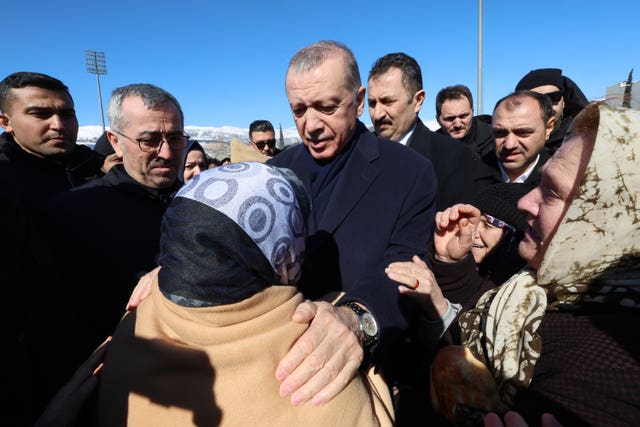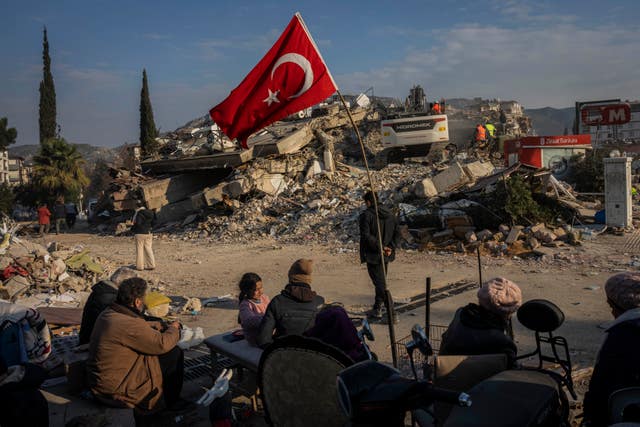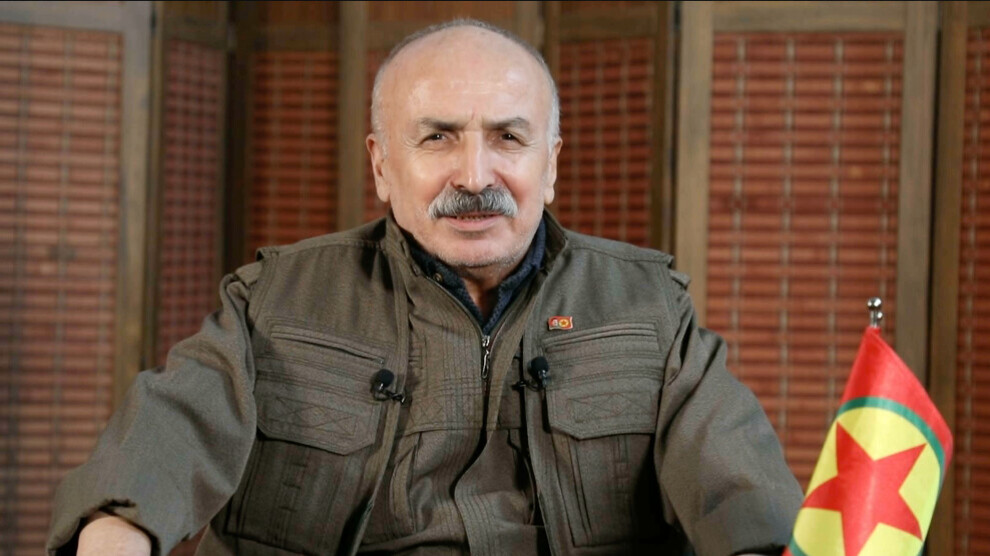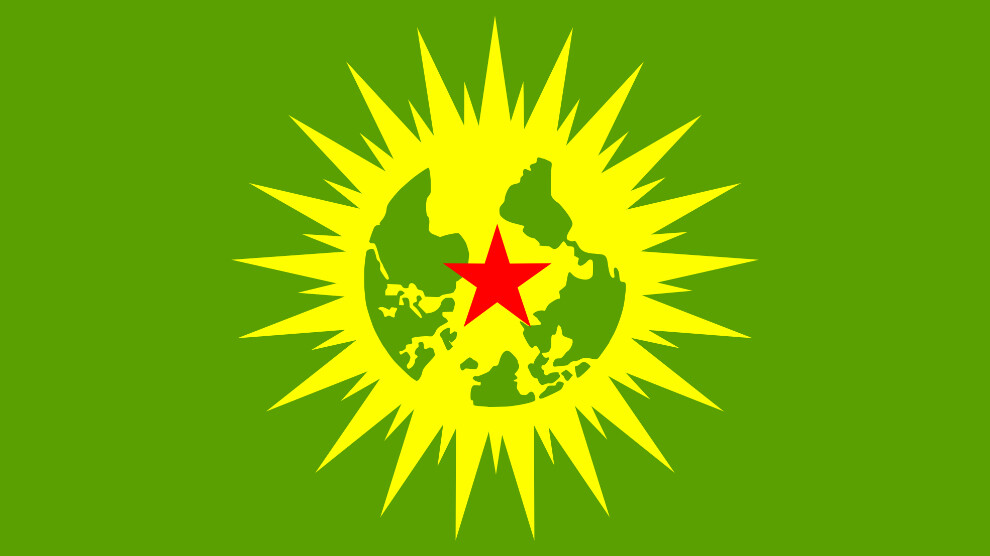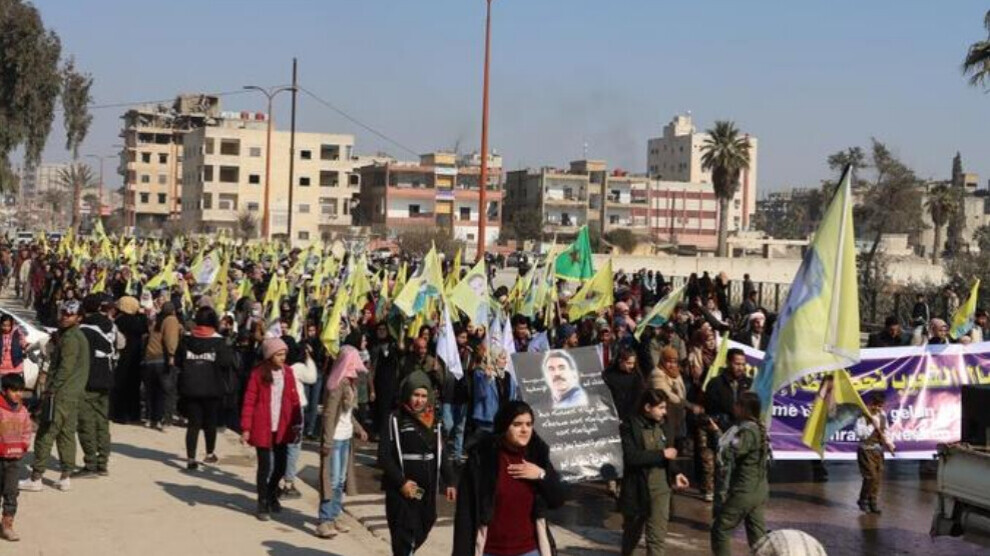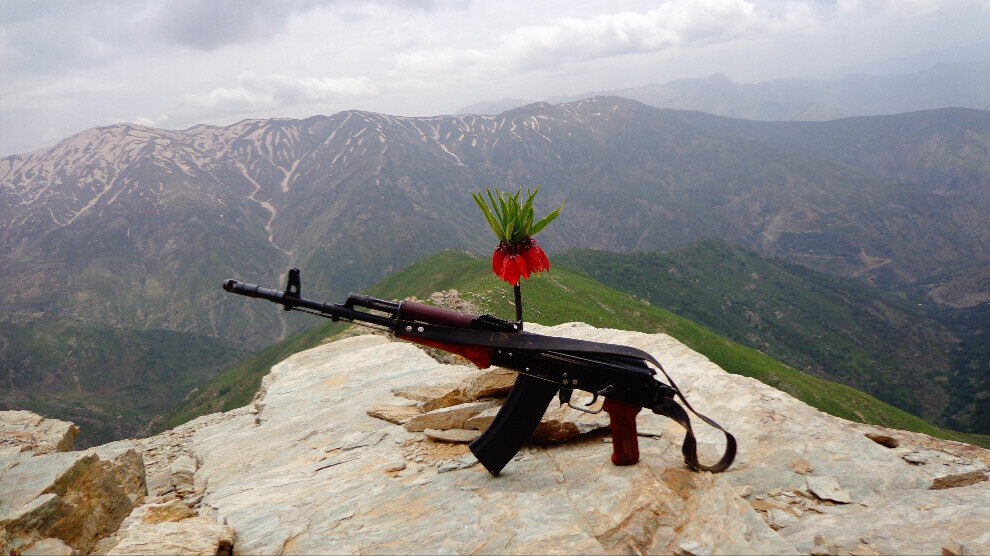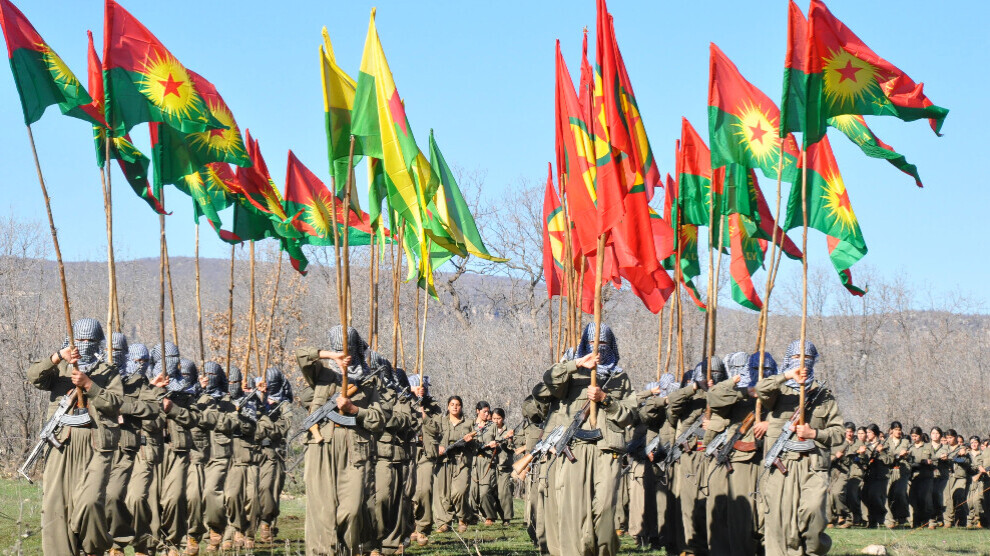First reading of proposals are set to take place in Knesset on Monday, with opposition calling for additional protests and partial strikes

Israeli protesters attend a rally in central Tel Aviv, on 11 February, against controversial legal reforms being touted by the country's hard-right government (AFP)
By MEE and agencies
Published date: 11 February 2023
Tens of thousands of Israelis took to the streets on Saturday for another week of protests against judicial overhaul plans by Prime Minister Benjamin Netanyahu's new government which critics say threaten democratic checks on ministers by the courts.
The plans, which the government says are needed to curb overreach by judges, have drawn fierce opposition from groups including lawyers, and raised concerns among business leaders, widening already deep political divisions in Israeli society.

Israel's military 'justice' system is turning in on itselfRead More »
"We (are) ...here in order to demonstrate against the government of Israel under Netanyahu, which in our belief is against democracy and are going to do anything they can in order to take out democracy of Israel," said Illan Bendori, 70, at a protest in Tel Aviv.
Netanyahu has dismissed the protests as a refusal by leftist opponents to accept the results of last November's election, which produced one of the most right-wing governments in Israel's history.
"We are ...very proud of our democracy and he wants to make Israel something else. We will not agree, we will do everything in our power to stop it," Hadar Weis, 61, told Reuters at the protest in Tel Aviv.
The protesters say Israeli democracy would be undermined if the government succeeds in pushing through the plans, which would tighten political control over judicial appointments and limit the Supreme Court's powers to overturn government decisions or Knesset laws.
Additional protests and partial strikes are called for Monday when a first reading of the proposals is set to take place in the parliament.
Israel's N12 news released a poll on Saturday revealing that 62 percent of Israelis want the proposed judicial plans to be either paused or halted altogether.
MOHAMMAD AL-KASSIM
02/12/2023
Tens of thousands protest in Israel for 6th week against government’s efforts to weaken Israel’s Supreme Court and wrest control of judicial appointments
Tens of thousands of Israelis rallied for the sixth week against their government’s planned legal reform of the country’s judicial system. The largest protests on Saturday night were held in Tel Aviv, with several other large demonstrations taking place around the country.
The protesters were rallying to condemn proposed controversial judicial reforms pushed by Prime Minister Binyamin Netanyahu’s right-wing government, which as written would give the government control over the appointment of new judges and weaken the Supreme Court.
The protests have become a weekly event on Saturday nights since the prime minister’s new government – labeled the most extreme, right-wing government in Israel’s history – took office in late December.
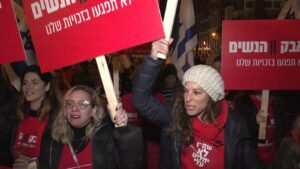
Women protest against the Israeli government’s proposed judicial reforms rally in Tel Aviv on February 11, 2023. (Dario Sanchez/The Media Line)
Moran Katzenstein, founder of Bonot Alternativa, a feminist group that works to counter discrimination and violence against women, told The Media Line that she is most concerned about the proposed changes that will impact the Supreme Court.
Katzenstein, who has attended every demonstration, accuses the government of being “misogynists” and “chauvinists.”
“Now it feels like this is a real milestone in discrimination against women, and this is where all women’s organizations are partnering together to demonstrate and to show our protest against the activity of the government,” she said.
She says she does not want the government to collapse, but calls on the “more rational” group of lawmakers within the government to take a stand.
“I think there are enough people in the government that can stop what’s going on themselves,” she said.
“I’m very concerned about what’s going to be with my beloved country after the changes that this government intends to do. It won’t be the same Israel as everybody knows until now,” Yaron, who drove an hour from Jerusalem to attend the demonstration in Tel Aviv, told The Media Line.
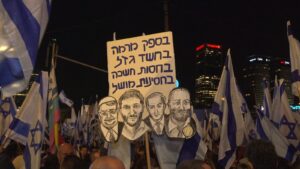
Protesters against the Israeli government’s proposed judicial reforms rally in Tel Aviv on February 11, 2023. (Dario Sanchez/The Media Line)
He added that “just 75 years after independence and nobody can be sure that we are going to keep being an independent and democratic country anymore.”
He called on President Isaac Herzog to intervene.
“I expect from our president to be more active not to let them do it,” he said.
Netanyahu returned to power following elections in November, the fifth in three years, at the head of the country’s most religious, nationalist coalition ever.
His proposed judicial reforms would allow Israel’s parliament to override any Supreme Court decision with a simple majority of 61 lawmakers in the 120-seat body, as well as boost political control over the system through which judges are appointed.
A first reading of the bill is scheduled for Monday.
Leaders of the protest movement opposing the reforms have called for a country-wide general strike on the same day.
Many young Israelis were in the Tel Aviv crowd, among them first-timer Gal, 21, who is calling on people his age to be more active and take a larger role “to protect the future of the country.”
“It’s nice that people older than me are coming to these protests because it’s important but, at the end of the day, people who are going to be affected in the long run are people my age,” he told The Media Line.
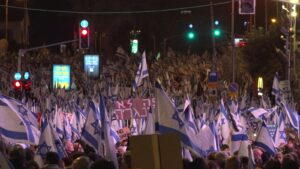
A sea of Israeli flags seen in Tel Aviv at the protest against the Israeli government’s proposed judicial reforms on February 11, 2023. (Dario Sanchez/The Media Line)
Gal, like many of the protesters, is demanding the resignation of Netanyahu, who is fighting corruption charges in court. He accuses the prime minister of putting his personal interests ahead of the government.
“We have a prime minister that’s trying to change the judicial system so he can get away with being corrupt. He is trying in every way to weaken the judiciary system to escape his trial,” according to Gal.
Netanyahu denies the charges against him, which include bribery, fraud and breach of trust.
Israel’s former attorney general, Avichai Mandelblit, accused Netanyahu of advancing the controversial reforms in order to bring an end to his ongoing criminal trial.
Mandelblit said in an interview broadcast Thursday that the proposed overhaul to the judicial system would be “regime change” that would “eliminate the independence of Israel’s legal system from end to end.”
